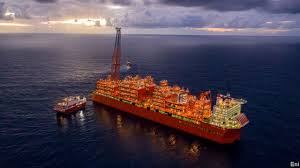 The conflict between Russia and Ukraine in 2022 heightened global interest in Africa’s gas resources. Two years later, we assess the progress of African gas projects and the continent’s future as a gas supplier.
The conflict between Russia and Ukraine in 2022 heightened global interest in Africa’s gas resources. Two years later, we assess the progress of African gas projects and the continent’s future as a gas supplier.
Challenges and Opportunities
Political and Security Hurdles: Africa’s largest gas projects have faced delays due to political and security challenges. Significant new gas capacity from the region is not expected until the late 2020s, with expansion largely driven by existing producers like Algeria and Nigeria.
European Diversification: Europe’s efforts to reduce dependency on Russian gas have increased interest in African liquefied natural gas (LNG) exports. However, African volumes remain small compared to competitors like the US and Qatar.
Domestic Infrastructure Investments: African governments are focusing on gas infrastructure for domestic consumption to meet rising energy demands and industrialization goals. Opportunities exist in countries like Angola, Nigeria, Ghana, and Egypt, where industrial clusters could support economically viable projects with government backing.
Global and Regional Dynamics
European Energy Shift: The war prompted European countries to seek alternative gas sources, spotlighting Africa’s potential. Deals were signed with countries like Algeria and Angola, but Africa’s gas boom has been slow to materialize.
Concentration of Production: Africa’s gas output is mainly from Algeria, Egypt, Nigeria, and Libya, which together produced over 80% of the continent’s 265 billion cubic meters in 2023. New discoveries in Mozambique, Senegal, and Tanzania hold promise but face investment and security challenges.
Investment and Development Challenges
Project Delays: Many new projects are stalled due to security issues and slow government engagement. For instance, Mozambique’s projects have been halted by security threats, while negotiations in Tanzania have been complicated by political changes.
Competitive Pressures: With significant LNG capacity coming online in the US and Qatar by 2027-28, African projects face stiff competition. Uncertainty over European gas demand due to decarbonization efforts further complicates investment decisions.
Future Prospects
North African Expansion: Existing producers like Algeria and Libya are expanding capacity, supported by existing infrastructure and European pipeline connections. Egypt is also investing in exploration to counter declining production.
Domestic and Asian Markets: Beyond 2030, Asia is expected to play a crucial role in absorbing new African gas capacity. East African projects are well-positioned to serve Asian markets, with Mozambique already exporting a significant portion of its LNG to Asia.
Domestic Demand Growth: Africa’s energy demand is projected to grow rapidly, potentially outstripping supply. This could create opportunities for smaller gas projects, supported by African financial institutions like the African Export-Import Bank.
Africa’s gas sector is poised for moderate growth, driven by existing producers and domestic consumption. While challenges remain, particularly in attracting investment and overcoming security issues, there are pockets of opportunity for growth, especially in North Africa and emerging markets in Asia.
Researched by Tunde Ojediran.
Student intern for XGALogic Inc.
For 1stAfrika 2024.

